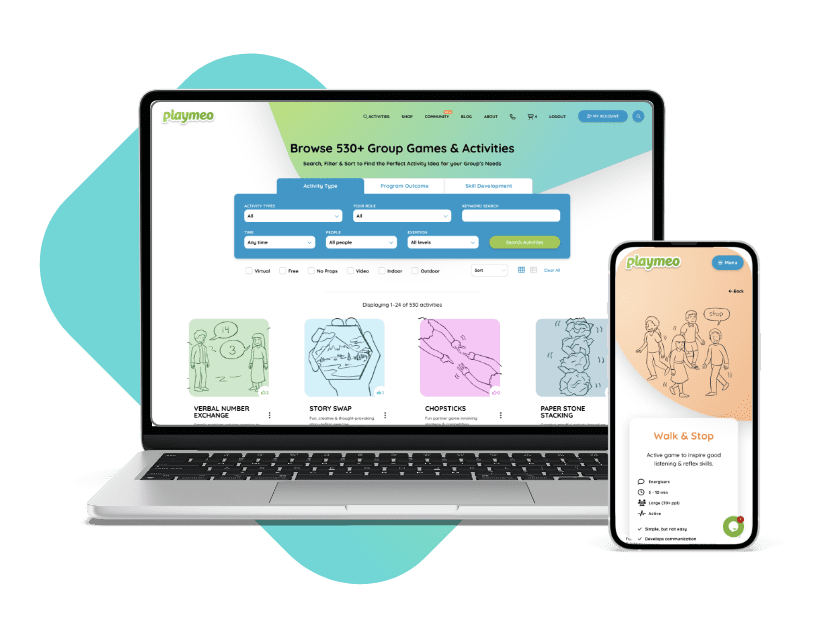Download our free 28-page ebook jam-packed with outrageously fun activity ideas.
The Zone of Proximal Development
In another engaging segment of our video tutorial series, this week’s Facilitator Tips episode introduces you to the powerful educational model or theory called the Zone of Proximal Development, created by Russian psychologist Lev Vygotsky.
<< Go to Episode 32 Go to Episode 34 >>
If you work as an educator in any realm – schools, outdoors, corporations, etc – this is a must-view video to help you understand why you sometimes meet resistance from your group.
Click the play button above to get started.
Want to join the conversation?
Please leave a comment at the bottom of the page (you must be logged in.)
Don’t have a playmeo account? Join today.
Useful Links & Resources
- Serious Fun & No Props No Problem – each of these two books provides a fuller description of the Zone of Proximal Development, especially its value and importance to the work of an experiential educator.
- Wikipedia reference – click the link to review a lot more information about the ZPD from the world’s largest source of online content.
…EE
Video Transcript
Welcome to Episode 33 of the Facilitator Tips video series.
My name is Mark Collard, I’m an experiential trainer and author, and today I want to focus on this thing called the ZPD, the Zone of Proximal Development.
If you work as an educator, you won’t perhaps even be aware of this but the foundation of all education has been based around this model. It was developed by a Russian psychologist, Lev Vygotsky, about 120 years ago. And when I really started to study the impact of what I was doing with my groups, the invitations I was inviting them to be able to grow, learn, and develop, I started to learn more about what was happening in this model and it was transformative.
First of all, there are three parts that Lev identified as zones in which we as human beings develop. And one of them, the proximal zone, was the one where we actually learn. You’ll be familiar with the term the Comfort Zone. Now a lot of people confuse this with just simply feeling comfortable.
Look, yes, it is related to how you’re feeling but it’s more about how you find success. Anything within your comfort zone, like my ability to use English language to communicate sits within my comfort zone because I don’t need anyone’s help or instruction or tuition to be successful. That is the definition of comfort zone, your ability to succeed.
However, no learning or growth occurs in that space. All learning, the proximal zone of development occurs in what we know as or the scientific term the Stretch Zone. That’s the proximal zone of development. It’s in that area all learning and growth and development occur.
And here’s the kicker. If our groups by default as comfort-seeking machines want to be in the Comfort Zone but we need them to be in the Stretch Zone, how do we get them there? Now I talk a lot about that in my books ‘Serious Fun’ and ‘No Props’, but for me, the number one technique is to have fun. That’s the attraction, the magnet that draws them out of the Comfort Zone into their Stretch Zone.
And then finally, there is a point where you can actually stretch too far, where it starts to hurt and you move into the Panic Zone. And that’s where no amount of tuition or leadership is going to be successful. All people want to do when they reach the Panic Zone is retreat back to their Comfort Zone.
But there’s so much to learn in this space around the Zone of Proximal Development, and if you’re interested certainly just stick in ZPD into the online search engine, or check out books like ‘No Props, No Problem’ or ‘Serious Fun’. In each, I discuss the details and the impact this learning model has on your work as an experiential educator.
Look, there’s so much more to share. Maybe you want to ask a question or leave a comment, please do. And if you find value in this or any of our episodes, please share. You’re welcome to do that.
Until next time, I look forward to seeing you in the next episode.
All the best. Bye-bye.







There are currently no comments